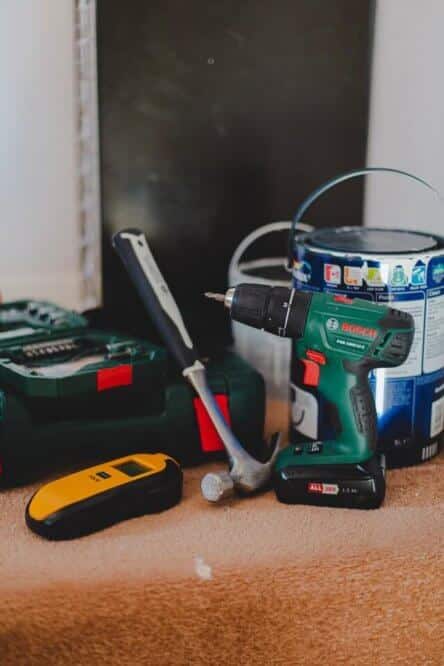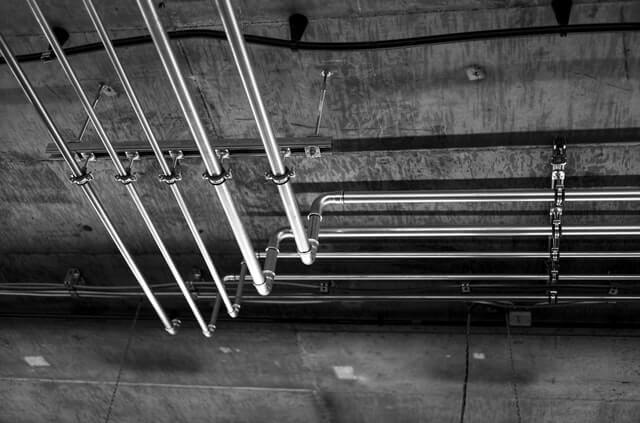There is probably nothing worse than going into the basement just to step into that cold puddle of water. Typically, the source of water is the floor drain. This will only increase the stress, as you guess the water likely isn’t clean. What are your options when there is water coming from a drain backup in basement?
No matter how you find it, the puddle in your house isn’t a pretty sight. When the water starts pouring out, you are probably wondering what is wrong with the drainage backup in the basement.
Believe it or not, the answer likely is ‘nothing.’ When there’s a basement floor drain backing up water, the culprit is probably another part of your plumbing system.
Why Is My Basement Drain Backing Up?
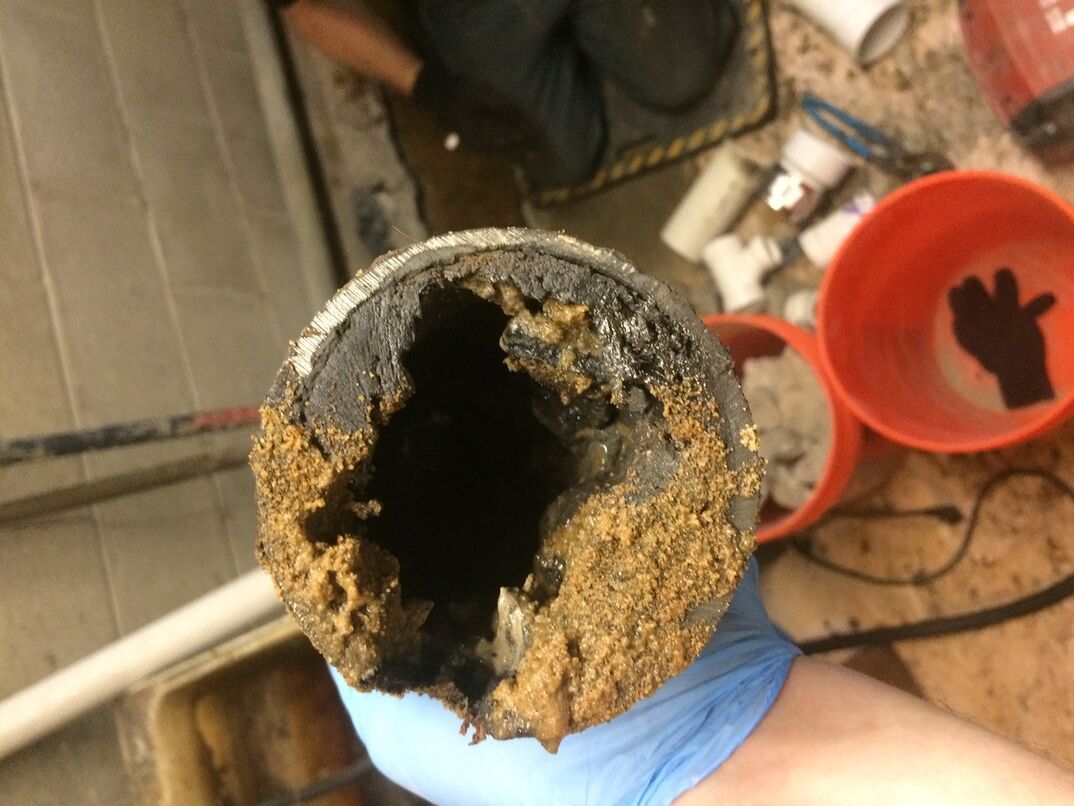
When you have a drain backup in basement, first, you have to determine what seems to be an issue. A blockage in the mainline can cause the puddle of water you see.
This blockage prevents your water from going down into the sewers. The water will then stay on the basement floor, as it has nowhere to go.
Another reason could be a backflow. This occurs when the waste comes back from your plumbing system.
This problem can be rather nasty, as there may be more than water that creates puddle.
You may even end up having a basement floor drain backing up with poop. Occasionally, the waste contaminating your home might come not just from your pipes, but also from neighboring properties.
Read Also: Water Coming Up From The Ground After Heavy Rain
Common Reasons Behind a Drain Backup in Basement
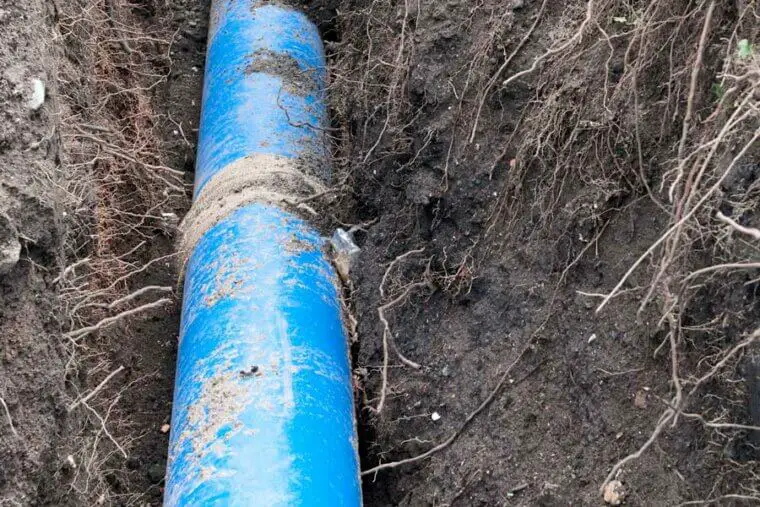
- Washing Machine Back Ups
A common culprit behind a drain backup in basement is a faulty washing machine. If there is something wrong with the machine, it can jam.
This will cause a large amount of water to run to the pipes, resulting in water leaking from the drain. Luckily for you, this one can be fixed easily.
Typically, you should simply unclog a drain hose strainer, a branch line drain, or a washtub basin. All of these you could likely do by yourself without any issues.
- Clogs in Sewer Lines
Your plumbing system has to be connected to a municipal line. It is typically connected with a portion of sewer running underneath your home.
To make it simpler, all the dirty water from your home has to reach a municipal line. Every drain, shower, toilet, etc. from your house connects with the dirty water from your neighborhood there.
This makes that particular sewer line extremely important, as it’s connected with every water source in your home.
If this pipe clogs, your house is prone to having a drain backup in basement.
Clogging of sewer lines means the water from your household ends up trapped. It can no longer exit the plumbing system the usual way.
The water will build up inside the sewers until it can no more. This will typically result in water bursting from a sewage backup in basement floor drain.
Why the basement drain?
The basement is typically the lowest part of any plumbing system, which means it’s the first to leak.
- Clogs in Drain Lines
Not all drain backups in the basement are caused by severe clogs, which is always good news. As we’ve already mentioned, the basement is the first place where water will try to escape the pipes.
The cause of this can be a small clog, which is relatively easy to repair.
Your plumbing system as a whole is made of numerous smaller drain lines. These drain lines connect to the main drain line, leading the water to the main sewer line. [1]
Clogs can create in these small drain lines. This may end with, for example, a basement floor drain backing up after shower.
If your basement floor drain backs up when toilet is flushed, this is another small, local clog sign. In fact, these specific occurrences can show you which exact line is clogged.
For example, you may have a basement drain backing up when washing clothes. If this is the case, it means the clog is in the line connecting your washer with the mainline.
Still, we would recommend you leave it up to a professional to determine the clog’s exact location.
- Damage to the Sewer Line
If you don’t have any luck, you may even be facing the worst-case scenario. Rarely, drain backups in basement are caused by damage to a sewer line.
This damage can lead to significant consequences, especially if not treated in time. Keep in mind that repairing broken sewer lines is an expensive task required by a professional.
What Causes Damage to Sewer Lines?
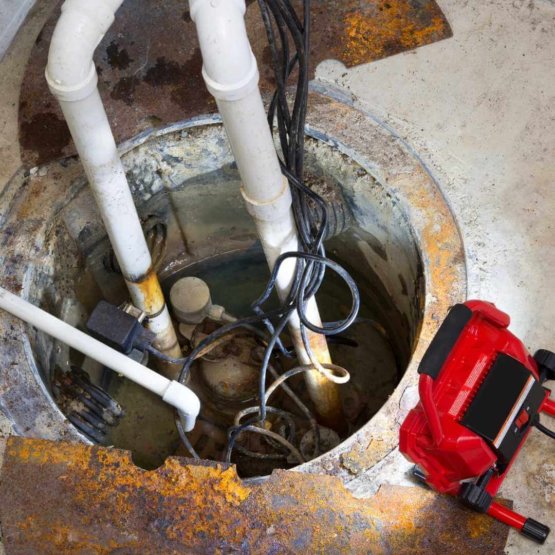
Sewer lines lie underneath our homes. This leaves them rather vulnerable.
The chances are you won’t be able to notice the problem until you have a basement floor drain backing up water.
Here are some of the common ways your sewer lines can end up damaged, and how to repair them.
- Roots
Yes, you’ve read that correctly. Tree roots are the most common culprit behind broken sewer lines. The strength of nature, especially trees, shouldn’t be underestimated.
They are a powerful part of nature that can grow in the most incredible areas. Not just that, but roots grow towards moisture and water.
To the trees, drain pipes sound like a never-ending life source. If there are any cracks in your pipes, roots will discover them and break-in.
This can cause a tremendous amount of damage. If left unattended, your sewer line may completely collapse.
If you have a pressure washer you can try to clean sewer lines using a hydro jetter kit. This can keep roots away for up to seven years. You could also try removing the root with an auger.
Keep in mind that the auger won’t be able to remove all the roots from your main sewer line. This is why this isn’t such a permanent solution compared to a hydro jetter.
- Deteriorated Pipe
Old sewers and drain lines clog more compared to newer ones. This is because even plumbing has an expiration date.
If your pipes are old, you may end up having issues with a drain backup in basement more often. Why does this happen?
As time passes, you will end up with debris building up on the inside of your pipe. Not just that, but if you have iron pipes, they will rust over time.
The more the walls of the pipe rust, the less space the water has for exiting. In the end, the main drain will be faced with more water than it can handle. The only way that the amount of water can go out is through your drain.
Not just that, but the rust and other mineral buildup are rather harsh. This will lead to anything soft going down the drain getting stuck to it.
In the end, your clog will only increase over time.
Another right solution for this is using a hydro jetter. A hydro jetter has enough power to remove any rust, scale, and debris off the drain’s walls.
The best option, however, would be to replace the pipes. If your sewer system is deteriorating, replacing faulty pipes is the only way to ensure getting rid of the problem. [2]
How to Prevent Having Drain Backup in Basement?
Even though having water backing up from your basement drain is sometimes inevitable, you can make some improvements.
This will reduce the chances of flooding reappearing. Here are some of the things you can do:
- Update drainage. With the help of downspouts and gutters, you can make sure the water goes away from your home. This is especially helpful if you have a basement floor backing up when it rains.
- Replace old pipes. PVC pipes should be replaced every 25 to 40 years. Iron pipes can last twice as long.
- Install a sump pump. This is useful if you are commonly experiencing floods in your basement.
- Install a leak detection system. This system will turn off the water supply when it detects leaks or irregular water flow.
- Water-proof your basement. Use silicate-based sealers and thick coats of paint to minimize water damage.
- Replace supply hoses of washing machines. Hoses should be replaced every 3 to 5 years.
Bottom Line
Having a drain backup in basement is a real nuisance, especially if it comes with feces and a bad smell. Some causes of a blockage are an easy fix. Others, however, require professional help.
You should act fast and get rid of the problem quickly. Drain backup isn’t just a nasty problem.
It can also cause severe water damage to the structure of your home. Also, if you don’t repair the root of the issue, this problem will only keep on reappearing.
If you aren’t sure what is causing the flooding, make sure to contact your local plumber fast.

Michael Davis is a heating & plumbing expert who currently works as independent contractor in SC. He also writes for Plumbertip.
For almost 10 years he worked on various plumbing tasks across South Carolina.
